Natalie Jaresko, who’s helping manage Puerto Rico’s bankruptcy process, knows more than most about the risks government borrowers can face.

The Chicago-area native lived in Ukraine for 25 years, where she co-founded a private equity firm and then served as minister of finance, overseeing the country’s debt restructuring and its International Monetary Fund program as war drained its resources. In early 2017 she agreed to move to Puerto Rico to lead the federal oversight board tasked with reducing the commonwealth’s $74 billion in debt and $50 billion of pension liabilities. Months later, Hurricane Maria slammed the island, ripping apart its electrical grid and killing thousands. Jaresko, who turns 54 in April, talked with Bloomberg News’s Michelle Kaske about how governments and investors should think about debt and risk.
MICHELLE K ASKE: How do you compare the financial crises in Ukraine and Puerto Rico?
NATALIE JARESKO: Despite the fact that Ukraine has 10 times the population of Puerto Rico, or more, the two economies are about $100 billion each. The debt stack was very similar, $74 billion, $70 billion, each. So the size of the problem was very similar. The nature of the debt is very, very different.
Sovereign debt restructuring is a little more flexible, a little more dependent on the sovereign itself, whereas in Puerto Rico there are a wide variety of rules, regulations, and laws that need to be abided by in each of the debt restructurings. Puerto Rico is just more complex in the debt stack itself. There’s secured debt, there’s unsecured debt, and there are major differences with regard to priority.
MK: And they each had catastrophes: In Puerto Rico it was a hurricane, and in Ukraine there’s the war.
Diese Geschichte stammt aus der April - May 2019-Ausgabe von Bloomberg Markets.
Starten Sie Ihre 7-tägige kostenlose Testversion von Magzter GOLD, um auf Tausende kuratierte Premium-Storys sowie über 8.000 Zeitschriften und Zeitungen zuzugreifen.
Bereits Abonnent ? Anmelden
Diese Geschichte stammt aus der April - May 2019-Ausgabe von Bloomberg Markets.
Starten Sie Ihre 7-tägige kostenlose Testversion von Magzter GOLD, um auf Tausende kuratierte Premium-Storys sowie über 8.000 Zeitschriften und Zeitungen zuzugreifen.
Bereits Abonnent? Anmelden
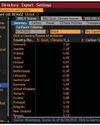
See Which Countries Are Falling Behind On Climate Change
Under the Paris Agreement, 190 countries and the European Union pledged to take steps to hold the global temperature rise to less than 2C (3.6F) from preindustrial levels—and preferably 1.5C.
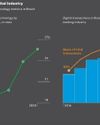
Billionaires Vie for the Future of Brazilian Finance
An escalating battle between two billionaires is upending the financial community in São Paulo, Latin America’s wealthiest city.
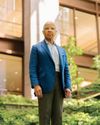
Ford Foundation's Darren Walker: ‘We Have to Get Uncomfortable'
DARREN WALKER, 62, disrupted his Wall Street life more than 25 years ago when he left what is now UBS Group AG to volunteer at a school and eventually pursue a career in community development and philanthropy. Since 2013 he’s been at the pinnacle of the philanthropic world as president of the Ford Foundation, created by the family of automaker Henry Ford during the Great Depression to advance human welfare.

Fueling the Ener Transition
I MAY BE BIASED, but some of the most important research and data on the Bloomberg terminal lies in one of its lesser-known functions: {BNEF }

Dig Into Analysts' Estimates for Disruptive Companies
THE PANDEMIC ERA generated a whole wave of disruptive companies as it accelerated the introduction of new products and services in areas including artificial intelligence, digitization, electronic payments, online meeting platforms, and virtual currencies.
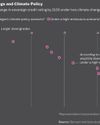
Climate Risks Come for Sovereign Credit
FOR YEARS climate scientists have warned about the ferocious wildfires and hurricanes that are now overwhelming many communities. Today alarms are ringing about a related financial danger: risks lurking within government bonds, the biggest part of the global debt market.

Responsible-Investing Pioneer Lydenberg Says ESG Needs An Upgrade
STEVE LYDENBERG’S passion for social change was inspired by anti-Vietnam War demonstrations, consumer boycotts, and the movement to divest from apartheid South Africa. But he didn’t take to the streets. Instead, Lydenberg turned to the world of finance to help catalyze societal change.

Engine No. 1's Grancio: ‘People Will Appreciate an Economic Argument'
ENGINE NO. 1 sent shock waves across corporate America in May when the fledgling investment firm won a boardroom battle with Exxon Mobil Corp., securing three seats on the oil and gas giant’s board after purchasing only about $40 million of its stock.
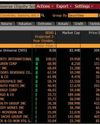
Find Out Which Companies May Ramp Up Payouts After Covid
AS THE PANDEMIC DISRUPTED business last year, many companies cut or suspended dividends. Which will boost their payouts when economies pick up again?
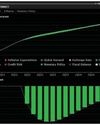
Get Into the Minds of Central Bankers as They Navigate Shocks
HAVE YOU EVER WONDERED how central bankers forecast the impact of shocks on the economy?